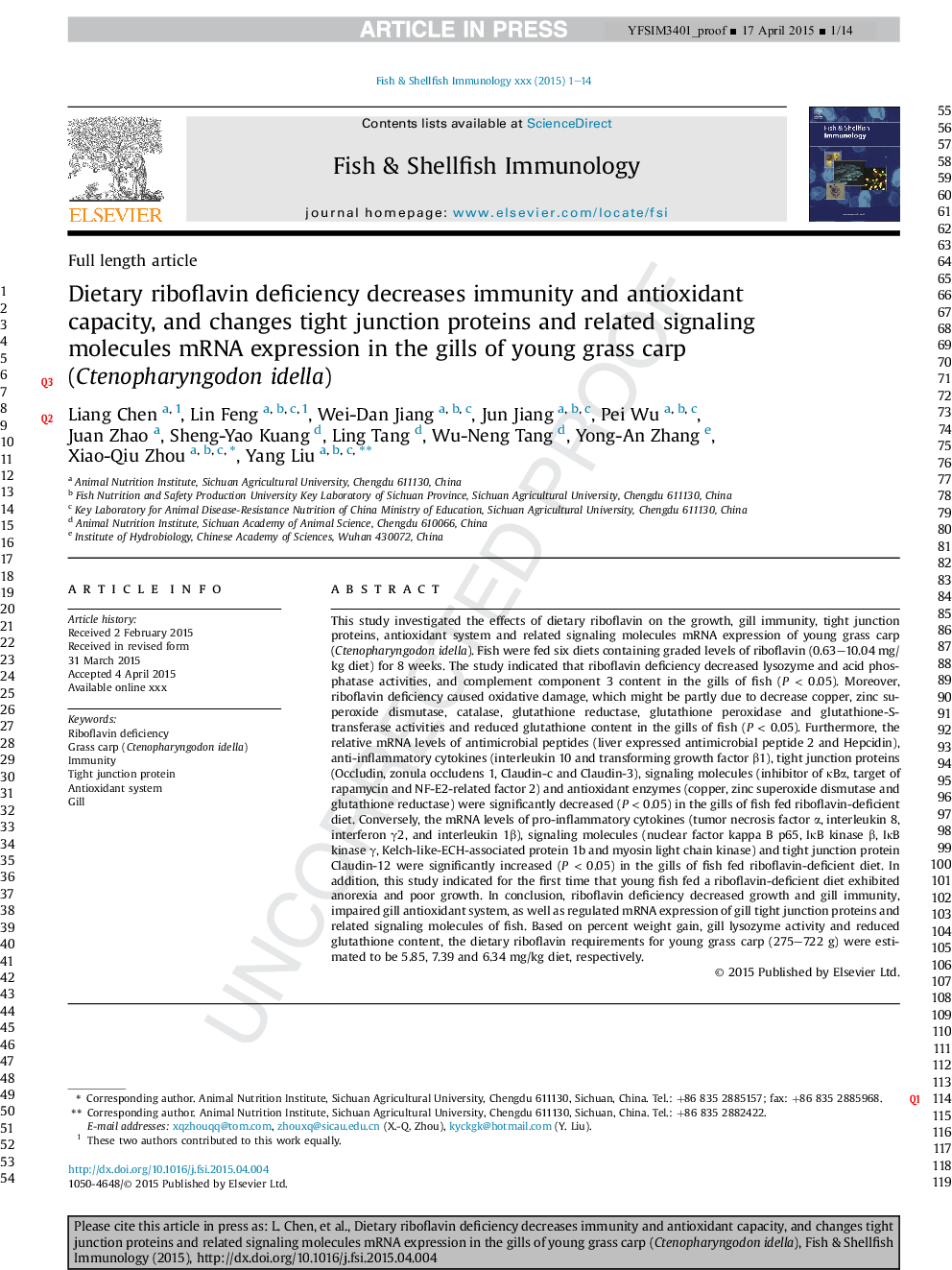| Article ID | Journal | Published Year | Pages | File Type |
|---|---|---|---|---|
| 10971809 | Fish & Shellfish Immunology | 2015 | 14 Pages |
Abstract
This study investigated the effects of dietary riboflavin on the growth, gill immunity, tight junction proteins, antioxidant system and related signaling molecules mRNA expression of young grass carp (Ctenopharyngodon idella). Fish were fed six diets containing graded levels of riboflavin (0.63-10.04 mg/kg diet) for 8 weeks. The study indicated that riboflavin deficiency decreased lysozyme and acid phosphatase activities, and complement component 3 content in the gills of fish (P < 0.05). Moreover, riboflavin deficiency caused oxidative damage, which might be partly due to decrease copper, zinc superoxide dismutase, catalase, glutathione reductase, glutathione peroxidase and glutathione-S-transferase activities and reduced glutathione content in the gills of fish (P < 0.05). Furthermore, the relative mRNA levels of antimicrobial peptides (liver expressed antimicrobial peptide 2 and Hepcidin), anti-inflammatory cytokines (interleukin 10 and transforming growth factor β1), tight junction proteins (Occludin, zonula occludens 1, Claudin-c and Claudin-3), signaling molecules (inhibitor of κBα, target of rapamycin and NF-E2-related factor 2) and antioxidant enzymes (copper, zinc superoxide dismutase and glutathione reductase) were significantly decreased (P < 0.05) in the gills of fish fed riboflavin-deficient diet. Conversely, the mRNA levels of pro-inflammatory cytokines (tumor necrosis factor α, interleukin 8, interferon γ2, and interleukin 1β), signaling molecules (nuclear factor kappa B p65, IκB kinase β, IκB kinase γ, Kelch-like-ECH-associated protein 1b and myosin light chain kinase) and tight junction protein Claudin-12 were significantly increased (P < 0.05) in the gills of fish fed riboflavin-deficient diet. In addition, this study indicated for the first time that young fish fed a riboflavin-deficient diet exhibited anorexia and poor growth. In conclusion, riboflavin deficiency decreased growth and gill immunity, impaired gill antioxidant system, as well as regulated mRNA expression of gill tight junction proteins and related signaling molecules of fish. Based on percent weight gain, gill lysozyme activity and reduced glutathione content, the dietary riboflavin requirements for young grass carp (275-722 g) were estimated to be 5.85, 7.39 and 6.34 mg/kg diet, respectively.
Keywords
Related Topics
Life Sciences
Agricultural and Biological Sciences
Aquatic Science
Authors
Liang Chen, Lin Feng, Wei-Dan Jiang, Jun Jiang, Pei Wu, Juan Zhao, Sheng-Yao Kuang, Ling Tang, Wu-Neng Tang, Yong-An Zhang, Xiao-Qiu Zhou, Yang Liu,
